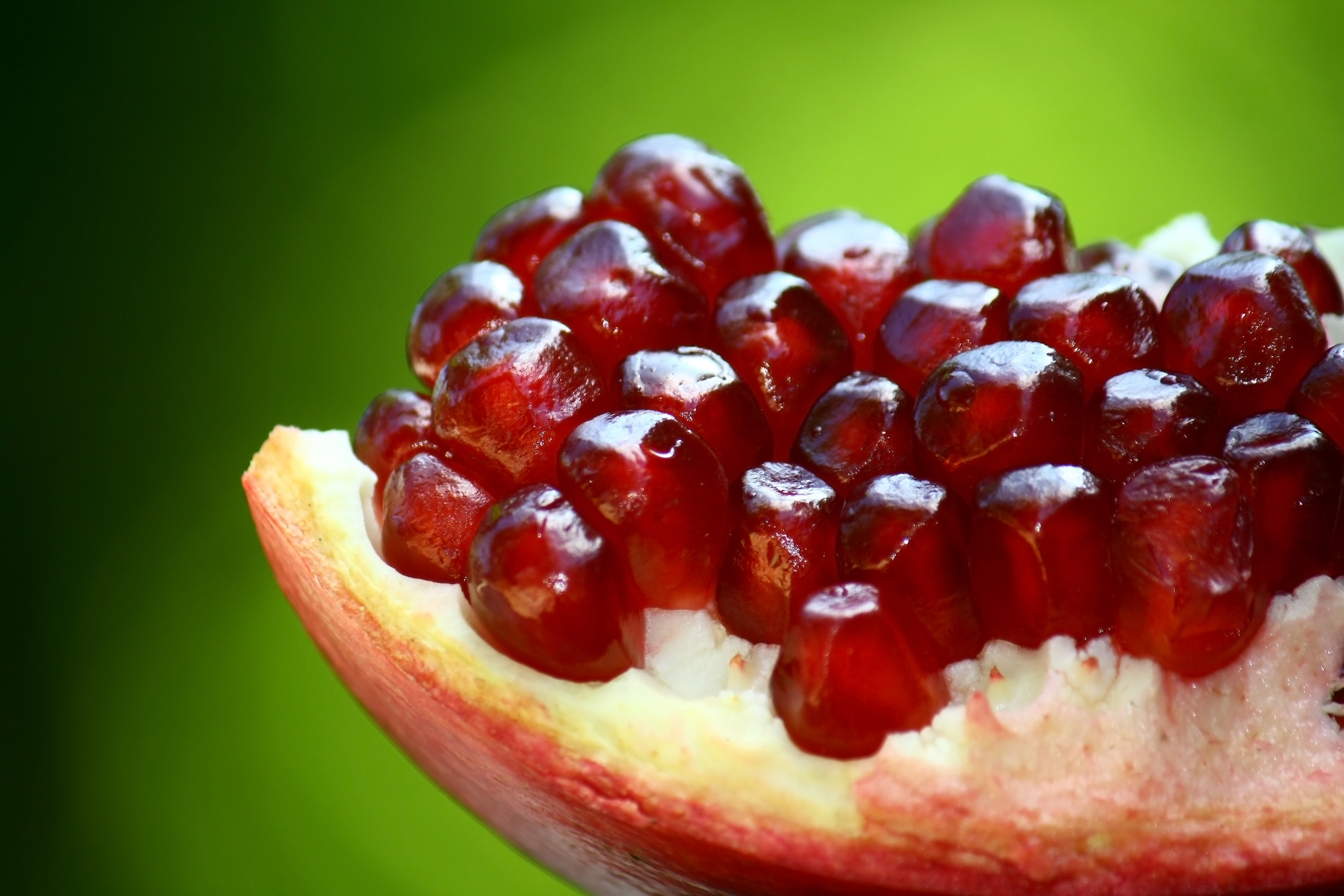Pomegranate to aid Alzheimer’s and Parkinson’s disease.
Fresh organic foods are packed with antioxidants and unique nutrients that boost the immune system.
The pomegranate, also known as the seeded apple, is shown as being a powerful fruit and is therefore loaded with health benefits.
It is deliciously sweet, and contains about 600 juicy seeds per fruit.
Pomegranate is very low in calories, high in fiber, and packed with disease fighting antioxidants, making it an ideal choice for our diets.
We have already seen how this amazing fruit can help clean your arteries.
The onset of Alzheimer’s disease can be slowed down and some of its symptoms can be curbed by an extract in pomegranate. The extract may also reduce painful inflammation from conditions such as Parkinson’s disease and rheumatoid arthritis, according to research led by University of Huddersfield scientist Dr. Olumayokun Olajide, who specializes in the anti-inflammatory properties of natural extracts.
This new breakthrough opens up a new phase of research for the development of drugs that can treat dementias such as Alzheimer’s. According to the Alzheimer’s Association, “An estimated 5.2 million Americans have Alzheimer’s disease in 2014, including approximately 200,000 individuals younger than age 65 who have younger-onset Alzheimer’s.” Worldwide, there are about 44.4 million people suffering with dementia, and the numbers are expected to rise.
The next breakthrough for Dr. Olajide and his team is to show that punicalagin, which is a polyphenol found in pomegranate, can reduce inflammation in specialized brain cells known as micrologia. Inflammation in these cells leads to the destruction of more brain cells, which can make dementia worse.
There is still no cure for Alzheimer’s, but the punicalagin in pomegranate may help prevent it or slow down its progression.
Dr. Olajide worked with his team in the University of Hudderfield’s Department of Pharmacy along with researchers from the University of Freidburg in Germany. The research team used brain cells isolated from rats to test the extract. The study was published in the journal Molecular Nutrition & Food Research.
Olajide is still testing the amounts of pomegranate extract required to be effective.
“But we do know that regular intake and regular consumption of pomegranate has a lot of health benefits — including prevention of neuro-inflammation related to dementia,” Olajide says, recommending juice products that are 100 per cent pomegranate, meaning that approximately 3.4 per cent will be punicalagin, the compound that slows down the progression of dementia.
He also notes that most of the potent antioxidant compounds are found in the outer skin of the pomegranate, rather than the soft part of the fruit. Olijade also adds that this pomegranate may aid any condition in which inflammation is a symptom, including Parkinson’s, arthritis, and some types of cancers.
AS ALWAYS: Check with your health practitioner before you change your diet. This organic food is not meant to replace any treatment or drugs you are taking.
DON’T FORGET to sign up for our weekly newsletter to get our latest articles, updates, free recipes and giveaways.
Cinnamon may stop the development of Parkinson’s disease.
Green tea can give brain power a boost.
For a brain boosting smoothie.
Exercise can be a memory saver.
Can omega-3 fatty acids boost memory?
REFERENCES:
1. “Research on Pomegranate Drug to Stem Alzheimer’s and Parkinson’s.” University of Huddersfield. University of Huddersfield, 22 Aug. 2014. Web. 27 Aug. 2014.
2. “Punicalagin Inhibits Neuroinflammation in LPS-activated Rat Primary Microglia.” Wiley Online Library. Molecular Nutrition & Food Research, 28 July 2014. Web. 27 Aug. 2014.
3. “Latest Facts & Figures Report.” Alzheimer’s Association. Alzheimer’s Association, n.d. Web. 26 Aug. 2014.

















